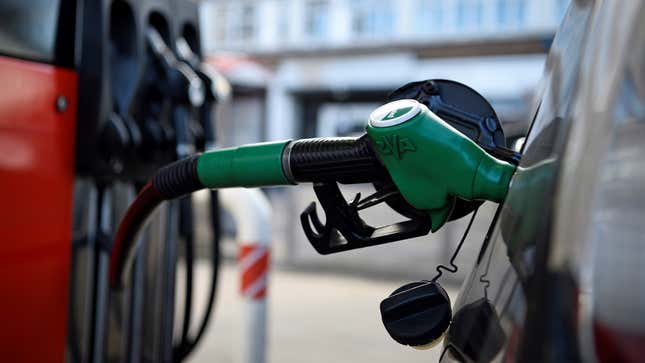
Officials from Petaluma, California have decided their city has enough places to fill up gas-powered cars. Last week, the local city council unanimously voted to ban new gas stations, building on a two-year moratorium passed in early 2019.
The council must approve the measure again at another reading on Monday. When it does, the bill will go into effect immediately, making Petaluma the first in the country to permanently halt the construction of new gas stations. The decision is directly tied to the city’s climate plan to get to zero emissions by 2030, and also points to the fact that the future of cars and trucks is electric—and that other cities need to start planning for that now.
Petaluma is just 15 square miles (39 square kilometers) in size, and is currently home to 16 gas stations with another recently approved one on the way. City officials say that’s more than enough for all 61,000 current residents and future ones, too.
“Based on this inventory, there are multiple stations located within a 5-minute drive (2.1 miles at 25 mph) of every existing residence as well as all areas planned for residential development by the 2025 General Plan but not yet constructed,” the bill says.
The ban will not only stop the city from approving any more stations within its limits, but also prevent currently-existing stations from adding more pumps. They can, however, add more infrastructure for electric cars. In fact, the legislation streamlines the process for stations to add electric vehicle chargers and potential hydrogen fuel cell stations in the future.
“This is a massive step forward in the fight to protect communities and the climate from fossil fuels,” environmental nonprofit Stand.earth, whose Stand Against Fossil Fuel Expansion Cities program supported the campaign for the bill, said on Twitter.
The new prohibition comes as part of Petaluma’s ambitious plan to completely phase out carbon emissions by 2030. It could also inspire other localities to take up similar legislation. An environmental organizing group called the Coalition Opposing New Gas Stations (CONGAS), for instance, has spent two years pushing for a ban on new gas stations applying to the entirety of Sonoma County, which includes Petaluma and eight other cities. Watch this space: The movement could spread.
“There’s no need for new fossil fuel infrastructure, from gas stations to pipelines to refineries,” Matt Krogh, U.S. oil and gas campaign director at Stand.earth, wrote in an email. “In California in particular, where state climate targets are required by law, new gas stations will have a short shelf life, and could be abandoned before they make enough money to pay for their own shut down and clean up. This gas station ban is a common sense step to not get further bogged down by fossil fuel infrastructure.”
In addition to pushing forth the city’s efforts to phase out using diesel-powered cars, the bill could have important local ecological effects. Even small gasoline spills and leaks from underground storage tanks—a frequent occurrence at pumping stations—can contaminate stormwater and groundwater with chemicals like benzene that have been linked to higher risk of cancer. That contamination can also make it difficult to use former gas station locations for other purposes when they’re shut down. Roughly half of the nation’s brownfield sites, or areas where contamination from a previous development complicates future use, are the result of petroleum pollution from abandoned gas stations’ underground tanks.
Transportation is currently the biggest chunk of carbon pollution in the U.S. Gas station bans are a small portion of what’s needed to wind down those emissions. But luckily, there are other moves afoot at the state level in California. Last year, the state banned the sale of new gas-powered cars by 2035, and will require 75% of heavy trucks sold in the state to be electric by that date as well. California and other West Coast states are also looking at building an electric highway to ease the transition to clean energy. A slew of policies are also on tap at the federal level that could help speed the transition along.
Update 3/1/2021, 11:50 a.m. ET: This post has been updated with additional comment from Stand.earth’s Matt Krogh.